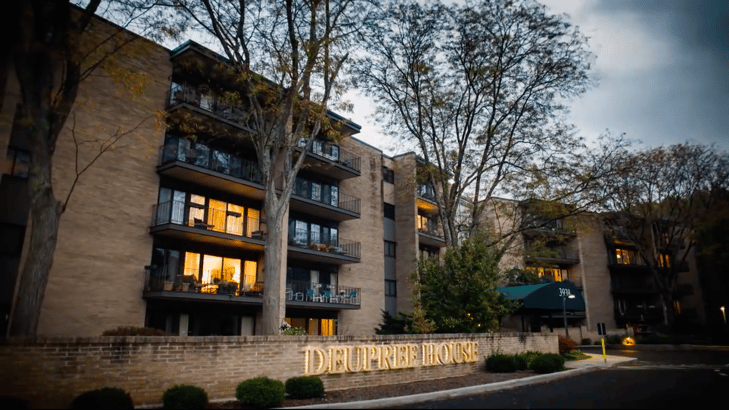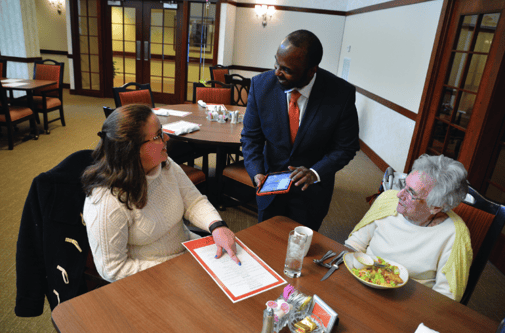So, you’re a senior living in Cincinnati. You’re approaching retirement and looking to worry less about the tasks of daily life.
Maybe you want rightsize out of an expensive-to-maintain home and stretch your nest egg, or you want to spend more time around people your own age. How do you choose a retirement community?
There are plenty of questions you should ask. You need to find a place you’d be comfortable calling home. You need to make sure that your retirement community can meet your continuing care needs as you age. And you’ll need to match up your wants with your financial resources.
Today, let’s review some smart strategies you can employ when choosing the place you’ll call home in your golden years.
1. Know your interests
 A lot of retirement communities offer similar activities to their residents: group outings, music performances, game and movie nights, etc. But what are they doing to foster their residents’ interests?
A lot of retirement communities offer similar activities to their residents: group outings, music performances, game and movie nights, etc. But what are they doing to foster their residents’ interests?
Say, for example, that you’re looking to share your career and life experiences, volunteer your service and stay engaged with the community at large. You’d want a retirement care provider who would provide opportunities and connect you with people and organizations that need your help, right?
Many residents at Episcopal Retirement Services communities, including Deupree House, volunteer through various community programs, and Deupree Meals On Wheels.
2. Visit Tri-state retirement communities and get to know your future neighbors
The best way to tell if you’d enjoy living in a community is to tour it and talk to seniors who already live there.
Do the people you meet enjoy life at their retirement home? Do you share mutual interests? Are they pleasant people who you’d want to call neighbors? How’s the food, the entertainment, the general environment? What are their impressions of the staff and the care they receive?
These are questions that can’t be answered in a Google search, or in a guide to area retirement care providers. Visit a variety of local retirement homes and get the scoop from folks who live there.
(Residents at Deupree House Grille 39)
3. Make sure that the environment fits both your vision of retirement and your physical needs.
Is the community old, new or recently renovated? Does it need a facelift, or are the grounds well-kept and beautiful? Is the interior lighting dim or fluorescent, or do residents enjoy plenty of window space and natural lighting?
 Would you have a single room, or an apartment of your own? Would you need to rely on a community cafeteria, or would you have different meal options like a cafe, a full-service dining room, in-room dining, and an apartment kitchen for cooking your meals whenever you want?
Would you have a single room, or an apartment of your own? Would you need to rely on a community cafeteria, or would you have different meal options like a cafe, a full-service dining room, in-room dining, and an apartment kitchen for cooking your meals whenever you want?
Would you have covered parking, or a designated space for your vehicle? Is it a long walk to the lot? If you have limited mobility, are the floors and halls easy to navigate? Are there tricky sidewalks.
4. Review your financial picture
Before you start visiting retirement communities, make sure that you have a well-developed picture of what your finances look like. Will your retirement income support the cost of living at your first-choice community? How long can you reasonably expect your nest egg to last?
It’s never too early to visit a retirement communities and determine which one would meet your expectations and budget. It’s a good idea to do so before you need to move out of your home, so that you and your family members won’t have to decide under pressure later.
(BONUS 🔗 : Cost of Living Calculator💰 )
5. Communicate your wishes to your loved ones
Once you’ve decided on a retirement community, make sure that you clearly communicate your retirement care wishes to your loved ones. Record them in a living will or other legal document, so that your loved ones will know what you want to happen if you’re ever unable to speak for yourself.
Ready to start looking for the place you’ll call home in your retirement?
Use the strategies above to find the community that would best fit your expectations, needs and budget. And, if you find yourself needing additional advice, download this free Decision Guide.













